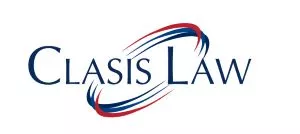- within Employment and HR topic(s)
- in European Union
- within Employment and HR topic(s)
- in European Union
- in European Union
- in European Union
- in European Union
- in European Union
- with readers working within the Law Firm industries
- within Employment and HR, Consumer Protection, Government and Public Sector topic(s)
INTRODUCTION
India has witnessed a sharp surge in gig and platform-based employment, driven by the growing demand for quick commerce, especially in the metropolitan cities. While this evolving model has unlocked new income opportunities for gig-platform based workers ("Workers" or "Worker") and allowed aggregators and platforms ("Aggregators") to scale rapidly, it has also brought to light key vulnerabilities on both sides.
Given that the nature of the engagement of Workers with the Aggregators does not constitute a traditional employer - employee relationship, these Workers often are not entitled to essential protections such as health insurance, accident cover and social security benefits. Aggregators on the other hand face operational challenges stemming from regulatory uncertainty and fragmented compliance requirements.
Recognizing the need for a structured and inclusive framework, in a landmark move, aimed at ensuring a sustainable balance between innovation and social welfare, the Government of Karnataka had promulgated the Karnataka Platform-Based Gig Workers (Social Security and Welfare) Ordinance, 2025 ("Ordinance"). Subsequently, to accord statutory force, the Karnataka Legislative Assembly passed the Karnataka Platform-Based Gig Workers (Social Security and Welfare) Bill, 2025 ("Bill") on August 20, 2025, thereby replacing the Ordinance, which presently awaits the Governor's assent and official notification for enforcement. It lays down a structured framework for ensuring social security for Workers through registration, benefit contributions and grievance redressal, while also setting out compliance responsibilities for Aggregators. This article provides an overview of the Bill's key provisions, highlighting its focus on Worker's welfare.
ESSENTIAL PROVISIONS OF THE BILL
- Applicability:
Once enforced, the provisions would be deemed to have come into effect from May 30, 2025 and would apply to a broad spectrum of Aggregators that offer services across various sectors such as ride-sharing, food and grocery delivery, logistics, healthcare, travel and hospitality, media and content creation and professional freelancing services1. Importantly, the Bill shall also bring within its scope e-marketplaces, covering both B2B and B2C models, regardless of whether they operate through a marketplace or an inventory-based structure. By adopting such an inclusive approach, the Bill ensures that all Aggregators relying on Workers within Karnataka are covered and not just a few dominant players.
- Key Definitions:
- "Aggregator2" refers to a digital intermediary that facilitates the connection between a buyer of goods or a user of services and the seller or service provider. It also includes any entity that works in coordination with other aggregators to provide such services.
- "Gig worker3" means an individual engaged in a work arrangement where payment is determined per task or service as per the agreed terms. This includes all kinds of piece-rate work where the work is accessed via a digital platform, in the services listed by the government.
- "Platform4" is defined as any system that offers services electronically at the user's request and involves organizing work carried out by individuals at a specific location in return for payment. It includes systems that rely on either automated tools or human decision-making based on data to manage and monitor such work.
- "Social security5" refers to the protections provided to Workers, ensuring access to healthcare and income security. This includes support in circumstances such as old age, sickness, work injury, maternity, unemployment, invalidity or death of a breadwinner. These protections are granted through rights and schemes established under this Bill.
- "Terminate" or "Termination6" means any significant restriction placed on a Worker's ability to access the platform. This includes actions like suspension, blocking access, or declaring the Worker ineligible to provide services, regardless of how long such restrictions last.
- Workers Welfare Board
The Karnataka Platform Based Gig Workers Welfare Board ("Board") would be been constituted to provide structured oversight, ensure access to social security and implement welfare measures for Workers across the State7. The Board features a diverse and inclusive composition, with representation from government, Workers groups, Aggregators, civil society and subject matter experts, reflecting a collaborative governance model tailored to the complex dynamics of the platform economy. The Board will operate within a well-defined governance framework. Nominated members would be appointed for an initial term of three years, with the possibility of extension.
The Board is entrusted with a broad set of powers and responsibilities, including the registration of Workers, maintaining Aggregator records and issuing compliance certificates related to welfare fee contributions. It is also responsible for the implementation and monitoring of social security schemes covering areas such as health, insurance, maternity, disability and income support. In addition, the Board is empowered to conduct surveys, collect data to guide policy decisions, undertake outreach and awareness initiatives, engage directly with stakeholders, constitute advisory or expert committees, design targeted schemes and recommend policies to strengthen welfare and protections for Workers8.
- Rights of Workers
The Bill marks a pivotal step in formalising the gig economy by granting Workers legal recognition and a defined set of statutory rights. It seeks to empower Workers through structured entitlements and acknowledging their contribution to the digital economy. At the same time, while conferring these rights, the Bill also places certain legal obligations on Workers, thereby contributing to a balanced framework that advances Worker welfare and ensures regulatory clarity and stability for Aggregators. The Bill introduces the following key statutory rights for Workers:
- Right to Registration: Every Worker is entitled to be registered with the Board upon being onboarded by an Aggregator, irrespective of the duration or frequency of work. Once registered, the Worker is issued a Unique Identification Number that remains valid across all Aggregators operating in Karnataka, ensuring portability of benefits9.
- Access to Social Security: Registered Workers are eligible for general and sector-specific social security schemes, including health, maternity, accident, disability and old-age support. Eligibility is tied to minimum work thresholds and contributions, promoting regular engagement while ensuring inclusivity10.
- Grievance Redressal: A formal mechanism is provided for Workers to raise grievances related to their work, thereby strengthening transparency, enabling redressal of workplace concerns and holding Aggregators accountable for fair practices11. The Workers are entitled for two tier grievance redressal against the Aggregators and against the Board12.
- Fair and Transparent Contracts: The Bill mandates that Aggregators enter into fair written contracts with Workers. These contracts must disclose essential terms, including payment structures, working hours, performance expectations, and termination conditions, ensuring informed consent and reducing asymmetry in contractual relationships13.
- Automated Monitoring and Decision-Making Transparency: Wherever Aggregators deploy automated systems for assigning tasks, evaluating performance or determining pay, the Bill emphasises the need for transparency and safeguards against biased or opaque algorithmic decisions. Workers are entitled to be informed of such mechanisms and seek recourse when adversely affected14.
- Income Security and Reasonable Working Conditions: The Bill affirms the right of Workers to income continuity and financial stability. It mandates that all deductions be transparently disclosed within the invoice and that payouts be made strictly in accordance with the agreed terms on a daily, weekly, biweekly or monthly basis. Timely compensation, at least on a weekly cycle, is essential to safeguard Workers from undue financial stress15. Further, the Bill underscores the need to establish standards for fair and safe working conditions, aiming to mitigate risks such as excessive work hours and inadequate rest16.
- Dedicated Fund and Welfare Fee: The State Government will establish the Karnataka Gig Workers' Social Security and Welfare Fund ("Welfare Fund"), creating a dedicated pool of resources to provide financial protection and welfare benefits to registered Workers17. It also levies a mandatory welfare fee from Aggregators ranging from 1% to 5% of each transaction which will directly contribute to the social security of Workers, ensuring sustained funding for their welfare and protection18.
Together, these rights represent a transformative shift in the governance of gig and platform-based labour ensuring statutory protection for Workers while promoting operational clarity and compliance for Aggregators. By embedding enforceable rights for Workers and setting out defined responsibilities for Aggregators, the Bill creates a balanced legal ecosystem that advances both social welfare and sustainable business practices.
- Statutory Duties for Aggregators
The several rights granted to Workers under the Bill create corresponding obligations for Aggregators, ensuring these rights are meaningfully upheld. This reciprocal framework promotes a balanced and sustainable Aggregators economy where the protection of Worker welfare and the interests of businesses are aligned. In line with these obligations, the Bill mandates the following compliances that Aggregators must undertake:
- Mandatory Registration: Aggregators must register with Board within 45 days of the Bill's enforcement. The Board will maintain and publish a register of all registered Aggregators, along with the designated officer responsible for compliance19.
- Transparency in Automated Systems: Aggregators must clearly disclose, in simple language (preferably Kannada, English or a known Eighth Schedule language), the functioning and impact of Automated Monitoring and Decision-Making Systems (AMDMS) that affect pay, ratings or work conditions. Aggregators must also ensure that discriminatory practices through these systems are actively prevented20.
- Disclosures on Grievance and Dispute Mechanisms: Aggregators are required to establish an Internal Dispute Resolution Committee to address Worker's grievances related to payouts, deductions or termination and must provide a dedicated web portal link for filing such complaints21. They must prominently display clear and accessible information regarding their grievance redressal and dispute resolution mechanisms on their platform interface, as prescribed22. The Committee is mandated to resolve grievances within 14 days and submit a written Action Taken Report to the complainant. If the issue remains unresolved or the Worker is dissatisfied with the outcome, the grievance must be escalated to the Board for final resolution. Aggregators are duty-bound to follow the prescribed procedures and timelines to ensure timely and effective redressal23.
- Nominate a Point of Contact: A dedicated human contact person must be designated for Workers queries, accessible in Kannada, English or other known languages. The contact details must be clearly visible on the platform. Optional physical help centres may also be established24.
- Integration with Payment Verification System: Aggregators must map every Workers payment to the Payment and Welfare Fee Verification System ("PWFVS"), ensuring accurate reporting of payouts and deductions. Disclosures must be made accessible to Workers and data privacy laws must be followed. Temporary exemptions apply until the system is fully operational25.
- Submission of Returns: Aggregators are mandated to electronically submit quarterly returns to the Board in the prescribed format. However, for ease of doing business, the State Government may, through notification, permit half-yearly or annual submissions26.
- Liability for Non-Compliance and Monetary Penalties
Aggregators are mandated to comply with the prescribed timelines for the payment of the Welfare Fee. Any delay in such payment shall attract simple interest at the rate of 12% per annum, calculated from the due date until the actual date of payment. Further, any contravention of the Bill or the upcoming rules framed thereunder may result in monetary penalties up to INR 5,000 for the first offence and up to INR 1,00,000 for each subsequent offence, as determined by the State Government. All other instances of non-compliance shall be dealt with in accordance with the prescribed procedures and any unpaid fines shall be recoverable in the manner laid down under the forthcoming rules. The imposition and recovery of such penalties will be subject to the norms notified by the Government27.
CONCLUSION: THE WAY FORWARD FOR RESPONSIBLE AGGREGATORS
While the Bill appears to be a reasonably balanced framework with progressive provisions for Worker welfare, certain aspects still await clarity, as the detailed rules are yet to be enacted. Some indication maybe taken from the draft of the Karnataka Platform based Gig Workers (Social Security and Welfare) Rules, 2025 ("Rules") which were published for public comments under Ordinance. The Rules provide detailed procedures for implementation, including the manner and format for Aggregators registration, submission and periodic updating of Workers data, electronic payment and reconciliation of the welfare fee, maintenance of a public register of Aggregators and operationalization of grievance redressal and appeals processes. However, the rules under the Bill are yet to be published and it is to be seen to the extent they would be modified.
In light of the obligations and compliance framework outlined, Aggregators must proactively align their operations with statutory mandates ranging from timely payment and transparent contracting to fair Worker treatment and accurate disclosures. They should start looking at institutionalizing robust internal compliance mechanisms, ensure timely submissions and build awareness within their operational teams. By doing so, not only can they mitigate financial and legal risks, but also foster a culture of trust, accountability and ethical governance. The Aggregators should budget for the cost of compliances and mandatory welfare fee that would be required to be paid going forward.
Footnotes
1 S.1 (3)
2 S.2 (b)
3 S.2 (e)
4 S.2 (g)
5 S.2 (k)
6 S.2 (o)
7 S.3 (1)
8 S.6
9 S.7.
10 Supra Note 9.
11 Supra Note 9.
12 S.22.
13 S.12.
14 S.13.
15 S.15.
16 S.16.
17 S.19.
18 S.20.
19 S.11.
20 S.13.
21 S.22.
22 S.17
23 Supra Note 21.
24 S.18
25 S.21
26 S.24
27 S.23
The content of this article is intended to provide a general guide to the subject matter. Specialist advice should be sought about your specific circumstances.



